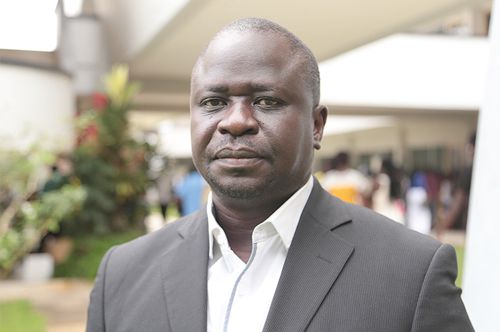
3 Bodies partner to promote big data
Three institutions, Ghana Statistical Services (GSS), Vodafone Ghana and the Flowminder Foundation, have embarked on a partnership to produce official statistics using de-identified telecommunications data to strengthen humanitarian and development decision-making in the country.
This collaboration, which is first of its kind in Ghana, is aimed at taking advantage of technology to transform the production of official statistics.
Advertisement
Flowminder, as part of this partnership, is also empowering the GSS with new approaches to sand harnessing data, as well as responding to emerging opportunities and challenges.
A statement jointly issued by the three parties on December 12 said the project relied on the use of de-identified (anonymised) and aggregated telecommunications data, provided by Vodafone Ghana to generate population predictions for sustainable development.
The data, in combination with more traditional data sources such as household surveys, provide useful information on the mobility and characteristics of the Ghanaian population which can be used for a wide range of humanitarian and development applications such as public health, disaster preparedness or transportation planning.
The statement added that GSS and its partners recognised that the achievement of the Sustainable Development Goals (SDGs) depended on the capability of the government, policy makers and agencies to make informed decisions and successfully deliver interventions for the well-being of the population.
Invest in data
The Head of Demographic Statistics and SDGs Coordinator at GSS, Mr Omar Seidu, said: “If we want to achieve the SDGs, we need to invest in data systems, and we are confident that our successful partnership with Vodafone Ghana and Flowminder is the way forward to leverage data for good”.
The Director of External Affairs of Vodafone Ghana, Mr Gayheart Mensah, commented: “Today marks a very important milestone in our quest to show the world how exciting the future of technology is going to look like, with Vodafone as a partner. We are excited that our collaboration has made this possible today.
“This is certainly proof that telecommunications such as ours can leverage the strengths of their core business to do good in a more consistent and sustainable way. We pledge our commitment to ensure that data is mined for the good of every Ghanaian,” he said.
Capacity strengthening
The Project Manager and Data Scientist at Flowminder, Ms Tracey Li, added: “Capacity strengthening is critical to support a culture where decisions are based on data.
Our role is to ensure that in-country experts are provided with the latest innovations, including methods and tools such as Flowminder’s open-source software - FlowKit, alongside skills development, to make this happen securely and successfully”.
She said working closely with GSS and Vodafone Ghana, Flowminder would process and analyse anonymous telecommunications data, working in line with Vodafone's global privacy principles, GSMA data protection guidelines and the Ghanaian data protection regulations.
Need for collaboration
The Minister of Planning, Prof. George Gyan Baffour, said leveraging technology to increase the availability of real-time quality data through partnerships and collaborations was an important step to ensure the nation’s development objectives.
“We must revolutionise and we must innovate. Technology gives us the capability to do things differently, more efficiently, and I must add, provided we take the necessary precautions,” he said.
He added that filling the data gaps required a change in the way data was collected and processed explaining that the existing data collection regime alone could not provide the timely and the much-needed disaggregation and other metrics to transform the country.
“We are, therefore, confronted with the need to innovate around data production, analysis, dissemination and use. Rising up to this occasion, the GSS has since the roadmap forum engaged with several partners in and outside the country to identify areas of collaboration to increase the production of timely and more disaggregated data,” he said.




